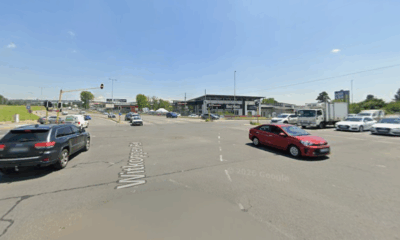News
‘He Just Wanted to Get Home’: Labour Court Sides with Worker Dismissed After Hijacking in Company

Dismissed, hijacked, and now reinstated, but not without a warning.
A Pretoria man’s attempt to get home after a long day ended in a nightmare, not just at gunpoint, but later at a disciplinary hearing. Now, after a long legal fight, the Labour Court has ruled that while he made a mistake, he didn’t deserve to lose his job.
A decision made out of exhaustion
William Dube, a warehouse supervisor at Gibela Rail Transport Consortium, had no idea his decision to drive a company vehicle home after a training session would spiral into a hijacking, a dismissal, and a courtroom battle.
The date was May 25, 2021. Dube had been authorised to use the vehicle to attend training at Riverside Lake near Nigel. After a long session, and with his own car parked at the office, he opted to drive home to Soshanguve, tired, and thinking it’d be fine just this once.
That decision changed everything.
A shocking crime and a misunderstood response
Shortly after arriving home, Dube was held at gunpoint by two men who took the company car and his cellphone. Shaken and alone, he walked to the Soshanguve police station and reported the incident. The vehicle, fitted with a tracker, was recovered the next day.
But things didn’t go back to normal.
Instead of concern or support, Dube faced questions and ultimately dismissal, for taking the car without permission and giving what the company claimed was misleading information about the time of the hijacking.
The timeline trouble
At the CCMA, Gibela Rail argued that Dube gave inconsistent times: 6pm to a security firm, 7:20pm to his employer, and 8:43pm to police. Tracking data showed the car stationary near his house at 8pm. The company said this undermined trust and that, as a manager, Dube had a duty to lead by example.
But Dube explained what many people in South Africa could relate to, after a traumatic experience, time loses meaning. He had no phone, no watch, and was in shock. He walked, waited at the police station, and didn’t intentionally provide incorrect details.
Court calls for compassion and realism
Labour Court Judge Robert Lagrange saw through the confusion. He found no clear attempt to mislead, just a man caught in a terrifying situation. He agreed with the CCMA that the dismissal was unfair, calling the employer’s view overly rigid and lacking empathy.
Still, Dube wasn’t let off the hook entirely. The judge ordered a final written warning be placed on his record for the unauthorised use of the car, signalling that while the hijacking wasn’t his fault, policies still matter.
Local reactions: empathy over policy
On social media, reactions leaned in Dube’s favour.
“He was hijacked. That should be the real headline. This country needs empathy, not cold HR policies,” one user posted on X (formerly Twitter).
Others criticised the employer’s approach, saying it highlighted how trauma in South Africa is too often treated with suspicion rather than support.
Context: a country where hijackings are common
In South Africa, where hijackings are tragically frequent, especially in Gauteng, it’s not uncommon for victims to be left reeling. According to SAPS data, carjackings rose significantly over the past few years, and most victims report feeling isolated by the justice or employment systems afterward.
This case touched a nerve because it felt like Dube was being punished twice: once by the criminals, and once by his employer.
policy vs humanity
The Labour Court’s decision strikes a delicate balance, acknowledging the breach of policy, but prioritising fairness and context. For many workers, it’s a reminder that while rules are important, they can’t come at the cost of compassion.
And for employers? A wake-up call: not every inconsistency is a lie, sometimes, it’s just trauma talking.
{Source: IOL}
Follow Joburg ETC on Facebook, Twitter , TikTok and Instagram
For more News in Johannesburg, visit joburgetc.com


























